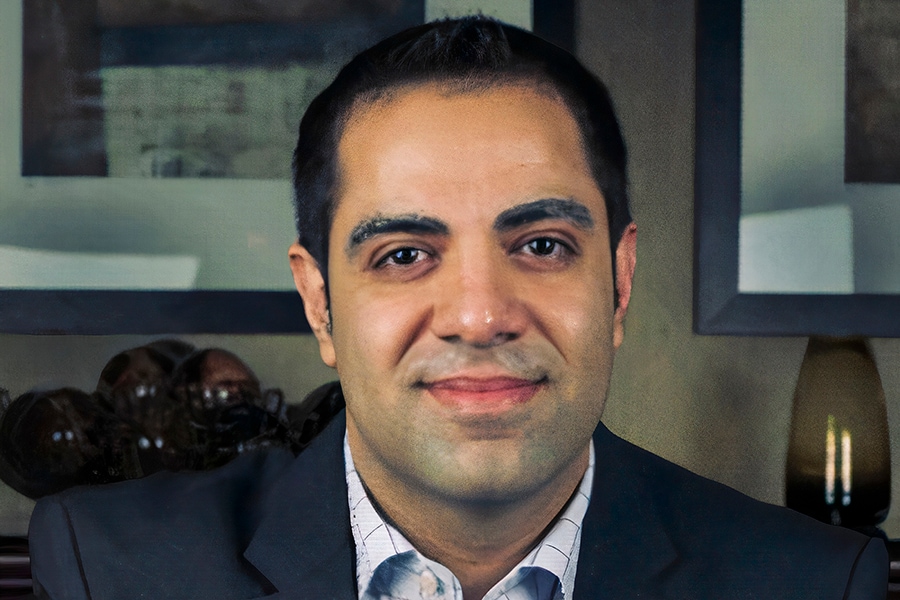
Chinese home security cameras present privacy risk: Hero Electronix
Nikhil Rajpal, CEO of Hero Group's electronics venture, claims that rival Chinese and other brands don't offer encryption
 Nikhil Rajpal, CEO of Hero Group's electronics venture
Nikhil Rajpal, CEO of Hero Group's electronics ventureSafety, along with the need to stay connected, has only become more important in these times, says Nikhil Rajpal, chief executive officer of Hero Electronix, the electronics venture of the Hero Group. However, not all smart devices—especially in the home security camera segment—offer encryption; this, Rajpal says, gives the firm an edge over Chinese counterparts.
Hero Electronix rolled out its consumer electronics brand Qubo in September 2019. Qubo cameras, Rajpal claims, are secured with proprietary QCrypto technologies, ensuring fully encrypted storage and streaming, with cloud back-up in servers based in India. “We have got an overwhelming response on e-commerce for Qubo smart indoor in the first week of its launch in May,” he says in an interview with Forbes India. Edited excerpts:
Q. How has Covid-19 impacted the demand for home security cameras and automation?
We have got an overwhelming response on ecommerce for Qubo smart indoor cameras in the first week of its launch in May. We believe that consumer spending on relevant products will continue. That said, we understand that it is a whole new word out there, and consumer needs have also changed from what they were six months back. In fact, our team has been able to develop mask detection with artificial intelligence (AI) on edge, to cater to present-day needs. The feature will be rolled out in Qubo home security camera soon.
Offline sales are likely to remain low for a few months, owing to regional lockdowns and decreased footfall. However, an increase in online demand should cover-up for that.
Q. You don’t have first-mover advantage in the home camera segment. How do you intend to stand out in a cluttered market?
What makes us different is that we have taken the longer route of product development from scratch, built our own enterprise-grade secure platform and taken customer-centric decisions at each step, providing breakthrough AI features. In fact, we launched our first product after more than two years of research and development. Our outdoor camera feature for a secure car park is one of the first of its kind globally, in a consumer camera. Similarly, our ‘baby cry detection’ feature is benchmarked against the best in the world. We are motivated by the positive reviews we have got from our customers and it has further strengthened our belief in our AI and innovation-led differentiation.
Q. Can you take on Chinese players present in the segment?
Since its inception, the Hero Group has gained consumers’ trust in multiple industries, and Hero Electronix is no different. Privacy is one of the topmost consumer concerns when it comes to home security cameras. Available Chinese and Indian brands in this segment don’t offer encryption, exposing customers to a big privacy risk. Qubo cameras, on the other hand, are secured with our proprietary QCrypto technologies, ensuring fully encrypted storage and streaming, with cloud back-up in servers based in India.
Q. CP Plus, which has Salman Khan as brand ambassador, has been aggressive in marketing. Can you take away market share from your rival? Do you plan to advertise on television and rope in a celebrity for endorsement?
We hold CP Plus in high regard for the success they have achieved in the surveillance camera space. Their major focus area and expertise has been the B2B and industrial segment, which has evolved a fair bit in the past decade. However, the home security market is in a very nascent stage, with less than 2% penetration, as opposed to 16% in the US.
As this market expands and consumer preferences evolve, multiple players will get the opportunity to succeed in different sub-segments. We are a new-age tech company and have a very strong differentiation in all our products. This is possible because we have custom designed and developed our products both from a hardware and software perspective as opposed to procuring standardised products and re-marketing them.
We are positioning Qubo as an upmarket yet humble brand that builds a deep connect with consumers over time. We believe that it is important to first drive awareness of the brand among in-market audience before going for a wider reach through TVCs (television commercials). At this stage, we believe that our products are our best brand ambassadors.
Q. While the opportunity is immense, the nascent home camera segment is quite challenging. Your comments?
The real opportunity lies in solving for a variety of practical problems. So far, the primary utility of camera has been in security-related monitoring. However, with all the advancements in audio/ video analytics, today a smart camera can be much more than just a security camera. For example, in baby care, cameras can make lives of young parents simpler by doing baby cry detection, safe zone breach detection, breathing analysis, sleep training and much more. Similarly, a lot can be done through AI for elderly care, through a smart & connected ecosystem.
While using AI to address real world problems is a big opportunity in this segment, AI solutions are not built overnight. It takes a significant amount of time to collect training data, build models, compress algorithms to fit them on device memory and run tests in real-world settings. Also, the initial adoption of any new technology takes time. Similarly, making people realise the value that AI-led products can add in their lives is not very straight forward, and will take both investment and time. Reaching out to target consumers and communicating the need in a cost-effective manner are some of the other challenges.





